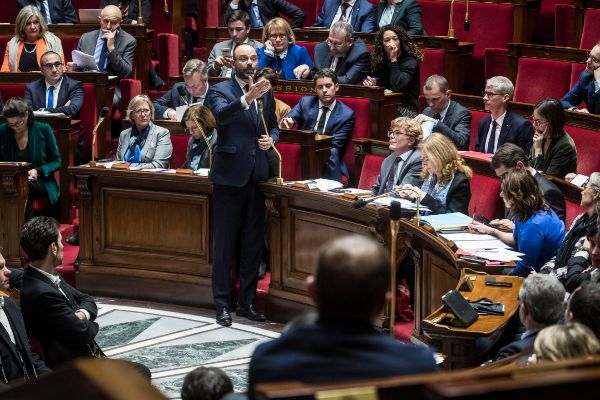- France.The strike, in seven questions
- Macron: This is Macron's pension reform
Not a drop of hydrocarbon should leave the refineries or fuel tanks. With this motto, the chemical branch of the French General Confederation of Labor (CGT) called on Tuesday to intensify the strike and block refineries and fuel tanks in France until Friday to protest against the pension reform of the President Emmanuel Macron.
"Seven refineries of eight are on strike," InfoEmmanuel Lépine, general secretary of this branch of the CGT, announced in France, who considered that "closing the taps will have an impact . "
The Ministry of Ecological and Solidarity Transition said Tuesday that, despite the actions of the trade unionists, "all the refineries in metropolitan France continue to produce."
"Since the beginning of the social movement in the country, there is an uninterrupted production in the refineries, the reserves in the deposits are at an excellent level and the supply of the service stations is normally produced," the Ministry said in a statement.
" It is not necessary to fill the tank if you do not intend to make immediate use of your vehicle," advised the Government. Some consumers have decided these days to do it for fear that they will run out of gas if refinery and deposit blockages continue. The Government wants to avoid that the fear of a shortage ends up collapsing French gas stations in a country that has been going on an uninterrupted public transport strike for a month.
Philippe's call to the Police
Prime Minister Édouard Philippe asked police prefects from across the country to mobilize law enforcement to ensure that there are no refineries and deposits blockages or supply difficulties. "The right to strike is respectable, the right to blockade is illegal ," the prime minister said in an interview on the RTL television network.
The start of these new blockades in the French refineries coincided with the resumption of negotiations between the French Government and the unions, contrary to the reform.
The unions do not give their arm to twist in the pulse with the Government. On January 9 and 11 they have called strikes and demonstrations across the country to pressure the government to withdraw the pension reform.
The bill will be submitted to the Council of Ministers on January 24 and the National Assembly is expected to begin discussing pension reform from February 17 to be approved before summer , according to the calendar announced by the prime minister , Edouard Philippe.
More than one month of stoppages
The strike on public transport - especially trains throughout France and metro, buses, trams and commuter trains in Paris - began on December 5 and continues these days with greater or lesser intensity. There are already 34 days of work stoppages in this sector, the longest strike of the SNCF , the French railway company.
Macron wants to simplify the complex French pension system and establish a universal point system in which all workers enjoy the same rights in retirement for the same contributions.
Now some workers of the so-called "special regimes" - such as those of the SNCF railways, the Paris Opera and the subway - are retiring earlier or with better conditions than other French workers. These workers are the ones who have most mobilized against the reform of Macron because they fear they will have to work more years for a smaller pension.
According to the criteria of The Trust Project
Know more- France
- Paris
Strike Macron's pension reform splits France in two
Strike: The French Government gives in to police requests and abandons protests
Pensions Neither Philippe is Juppé nor are we in 1995

